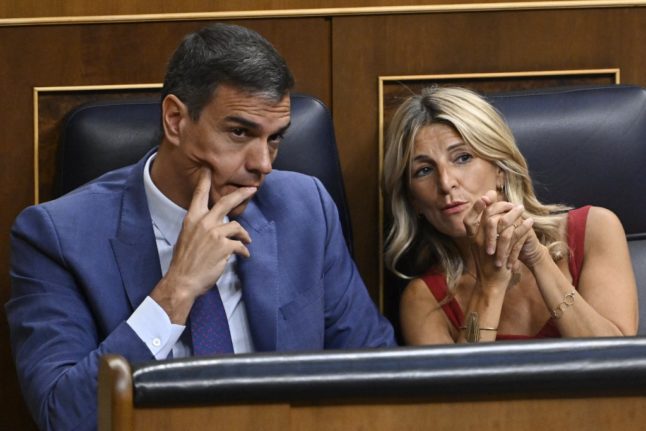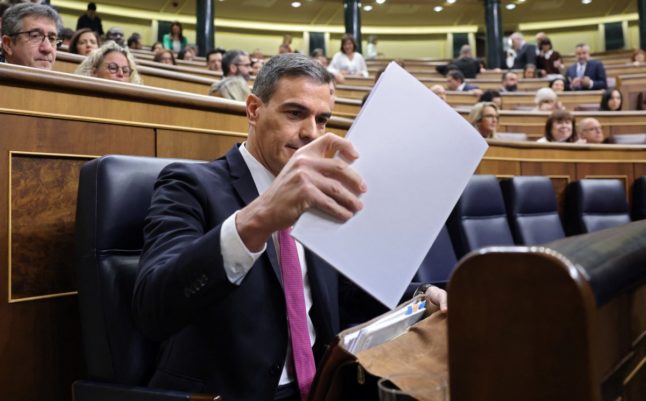Acting Prime Minister Pedro Sánchez and Sumar leader Yolanda Díaz — who is also acting labour minister in Spain’s Socialist-led caretaker government — met Wednesday to formally start negotiations to renew his term.
King Felipe VI on Tuesday tasked Sánchez to try to cobble together a working majority in parliament after the leader of the conservative Popular Party — which won the most seats in a July general election – failed in his own bid to win parliamentary support to become prime minister failed last week.
Hoy me he reunido con @sanchezcastejon para iniciar una nueva fase y acelerar las negociaciones del acuerdo de gobierno.
Desde Sumar no nos conformamos, queremos un gobierno que reduzca la jornada laboral, suba salarios y aborde el problema de la vivienda. pic.twitter.com/ypx9YotwlH
— Yolanda Díaz (@Yolanda_Diaz_) October 4, 2023
During their talks Sánchez and Díaz “discussed the amnesty” and agree on the “approach” to take, Sumar spokesperson Nacho Alvarez told reporters after the meeting.
“It is not an issue where we have disagreements at the moment,” he added.
If Sánchez is to be reinstated as premier, he will need to pass a key parliamentary vote for which he will need the backing of Sumar as well as some Basque and Catalan nationalist parties.
In exchange for their support Catalonia’s two main separatist parties — ERC and the more hardline JxCat — are both calling for an amnesty for the hundreds of politicians and activists facing legal action over their role in Catalonia’s failed 2017 secession bid, which sparked Spain’s worst political crisis in decades.
The amnesty is vehemently opposed by the right and also crosses a red line for some within Sánchez’s own Socialist party.
An anti-independence group is organising a protest in Barcelona on Sunday against the amnesty, and Alberto Núñez Feijóo and other top officials from his main opposition Popular Party have said they will take part.
Álvarez said there were still difference between Sumar and the Socialistsover “social and work-related issues”.
“We want a government that reduced working hours, raises salaries and tackles the housing problem, Díaz wrote on social media network X, formerly called Twitter.
Sánchez, who has governed Spain since he led a successful no-confidence vote against former PP prime minister Mariano Rajoy in 2018, has proved to be a tenacious political survivor with a knack for striking deals with rival parties.
“We have shown our capacity for dialogue and consensus,” said Socialist party spokeswoman Pilar Alegria, before adding Sánchez and Díaz will reach “clear and transparent” agreements.
If no candidate secures a parliamentary majority to govern by November 27th, another national election has to be called, most likely in mid-January.



 Please whitelist us to continue reading.
Please whitelist us to continue reading.
Member comments